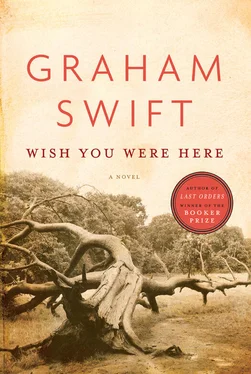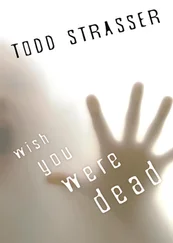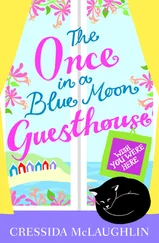The Robinsons weren’t interested in the kind of security — or insecurity — that had mattered to Jack, that was causing him to be selling his farm. They saw this as only offering them their opportunity. They — or Mr Robinson — saw cow disease and distress sales as possibly working to their advantage. Toby had told his wife that north Devon was off the beaten track. It was still genuine, undiscovered countryside. Everyone went to south Devon and Cornwall where prices were already beefed up, and — talking of beef — this BSE business could only mean there might be some real bargains around. Toby Robinson, investment banker though he was, had in certain situations, Clare knew, the instincts of a huckster, loving nothing better than to beat down a price. It was perhaps why he’d got to where he was. And also why the word ‘countryside’ seemed strange on his lips.
Toby had thought Jack was an extraordinary character to have to deal with (he wouldn’t have meant this as a compliment), but he was very careful not to appear to look down on him. He didn’t want to give the impression that a sum of money that to Jack, so he guessed (and guessed right), might be eye-popping, was to him, Toby, still almost within the bounds of pocket money. At the same time he had a sort of visceral respect for the man. Farmers went to market, didn’t they? (Or did they any more?) They couldn’t be so different from people who worked in the City.
What the Robinsons meant by security was the kind of security that might prevent the possession and enjoyment of their new property from ever being impaired or violated. Nonetheless, what Clare Robinson might have said of the effect upon her of seeing that newspaper item — though her physical well-being had in no way been harmed and though their possession of Jebb Farmhouse remained happily intact — was that it made her feel insecure.
Had Bob Ireton and Jack found themselves together, soon after the funeral, on what was now the Robinsons’ property — and whether or not Jack would have been theoretically guilty of trespassing — they might have had a conversation about security. They might have sat in Ireton’s police car, on the new, immaculately bricked turning-area, amid all the new landscaping and terracing, but looking at the essentially unchanged view before them (less impeded now after the removal of the Small Barn), down Barton Field. Bob might have brought Jack up to date about all the changes at Jebb — visible as they were around them — but they might have moved inevitably, even despite themselves, onto this larger subject.
Bob might have said, alluding to the Robinsons and their kind and the fears manifested by their elaborate alarm systems, that such people had a problem. They didn’t know how fortunate they were, they couldn’t just be glad of what they had, and they didn’t know the real meaning of loss, did they? Here, Bob might have looked at Jack carefully. Both men, sitting side by side, might have been feeling still a detectable, angular pressure on one shoulder. But on the other hand, Bob might have said, the world — the world at large — certainly wasn’t getting any safer, was it? So, he might have added, with an attempt at weary humour, he’d picked the right job, hadn’t he? But would have stopped short of saying anything to the effect that some people might have concluded that Tom (though Bob knew it could hardly actually have been his motive) had picked the right job too. Keeping the world safe. Security. That was the argument that always got used, wasn’t it? Though it could be used, couldn’t it, to justify just about anything?
Bob, though a practical policeman, had become a not unreflective man and, while keeping these thoughts to himself, might have looked soberly across the frost-whitened valley before them.
Jack might have said, ‘And a sergeant now, Bob.’ Remembering all the stripes and gold braid and sashes he’d seen the day before. And Bob might have kept to himself how he’d had his uniform specially dry-cleaned and pressed for the morning’s occasion, how he’d inspected himself in the mirror. Jack might have felt, all the time, the medal burning in his pocket.
Bob, looking at Jack also contemplating that frosty view and seeing his Adam’s apple rise and fall, might have begun to wish this topic of security hadn’t emerged, prompted as it was not just by the burglar alarms at Jebb, but by his local policeman’s need to give some context to the death of a once local man in a far-away country. But Jack might at last have begun to take up the theme by saying that in his current line of work security was actually quite a factor. It wasn’t just that now and then he had to step in to deal with little episodes that could make him feel a bit like a policeman (he might have looked shyly at Bob), but there was the whole question of guarding the caravans during the off-season months. Like now. Though he probably wouldn’t have mentioned that he had a contract with a security firm (he didn’t just rely on the local police) and this was especially necessary when they — he and Ellie — took their holidays (though not this winter) in the Caribbean.
Jack might have said that it was a funny thing, but the caravanners, on their holidays, often wanted to talk about the general state of the world, how it wasn’t getting any safer. Just like him and Bob now. And Jack might have put forward the idea that there was no such place really as ‘away from it all’, was there? Then he might have made a stumbling effort at a joke. He might have explained that he lived these days in a place called Lookout Cottage that had once been a pair of coastguards’ cottages. It had once been where two now-forgotten souls had had the task, in theory, of guarding the whole country against invasion. But now everyone had to keep a lookout, didn’t they?
Both men might have gazed out over the valley and Bob might have picked his moment to say, ‘But you’re doing okay, aren’t you, Jack? Things are okay?’ Or to say, ‘And how’s Ellie? I couldn’t help noticing she wasn’t here.’ But thought twice about that question and perhaps about asking any others, because he wasn’t honestly sure what might make Jack, sitting here amid all the transformations that had occurred at Jebb, suddenly burst into tears.
A silence might have passed between them, broken only by the cackling of rooks, in which they might both have stared at the crown of the oak tree. How could they say between them whatever it was that needed to be said about the death of Tom Luxton?
Jack might have looked at Bob and thought: Is he going to arrest me anyway, after all, for something much bigger and worse than being found on private property? But Ireton might have looked at his watch and said, in a shepherdly way, as if he’d simply chanced upon someone who’d got lost, ‘Well, Jack, I can leave you here to carry on trespassing by yourself, or I can drive you back up to the road and see you on your way.’
Looking back, Clare Robinson could admit that her first, shadowy misgiving — even before that ‘shiver’—had been the foot-and-mouth. She’d been able to tolerate the long dragging-on of the building work. After all, they’d let themselves in for it. If they’d been over-ambitious, it was their own fault. On the other hand, if it all bore fruit the way they visualised, it would have been worth the waiting. Fruit was meanwhile borne anyway — and rather unexpectedly — in the form of their third child, a girl to go with the two boys, and Clare vaguely believed that this had happened precisely because their ‘country place’ awaited them. Since, apart from all its other virtues, it would be a haven, a perfect paradise for the children. Another child could only justify it all the more, and sanction the scope of their intentions for it. And little Rachel simply took up their time and made the continual postponement of when they might actually ‘move in’ seem only practical. They’d move in when she was old enough to know about it.
Читать дальше








![Питер Джеймс - Wish You Were Dead [story]](/books/430350/piter-dzhejms-wish-you-were-dead-story-thumb.webp)



